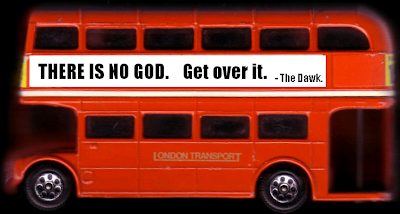
Suck it, Panama! (in a couple of decades or so...)

In our own country today, despite the recent credit squeeze, our citizens have never been so wealthy. High-def TVs fly off the shelves at Tesco quicker than they can be imported. Whatever the latest technological innovation, most people can treat themselves to it. Eating out - a rare treat when I was a child in the ’70s - is as commonplace as going shopping. And when we do go shopping, whether for groceries or for clothes, we spend money in quantities that would have made our parents gasp.This is a point I always raise when people suggest "this country is going to the dogs!" How exactly is it?
I know it’s only the Mail, but for the record, I absolutely was not telling people to cheer up. I was simply asking why people in the current generation - even those who aren’t suffering as much from the current economic slowdown - aren’t as happy as our parents’ generation. Am I being too optimistic in expecting a grown-up debate about this?Apparently he is. I am incredibly fortunate to be living in the UK at this time in history. I'd say being middle-class in the UK is probably amongst the top five best possible states for a person to exist in all history.

Remodeling an old farmhouse two years ago and replacing its sash windows, I discovered the current state of window technology. A standard Andersen window, factory-made exactly to the dimensions you want, has superb insulation qualities; superb hinges, crank, and lock; a flick-in, flick-out screen; and it looks great. The same goes for the new kinds of doors, kitchen cabinetry, and even furniture feet that are available — all drastically improved.
The message finally got through. Good old stuff sucks. Sticking with the fine old whatevers is like wearing 100% cotton in the mountains; it's just stupid.
Give me 100% not-cotton clothing, genetically modified food (from a farmers' market, preferably), this-year's laptop, cutting-edge dentistry and drugs.





"In the age of computers, maths beyond simple and applied arithmetic is needed only by specialists. Ramming it down pupils' throats in case they may one day need it is like making us all know how to recalibrate a carburettor on the offchance that we might become racing drivers. Maths is a "skill to a purpose", and we would should ponder the purpose before overselling the skill."
Riiiight. So a journalist thinks that in the age of computers complex maths is needed only by specialists.